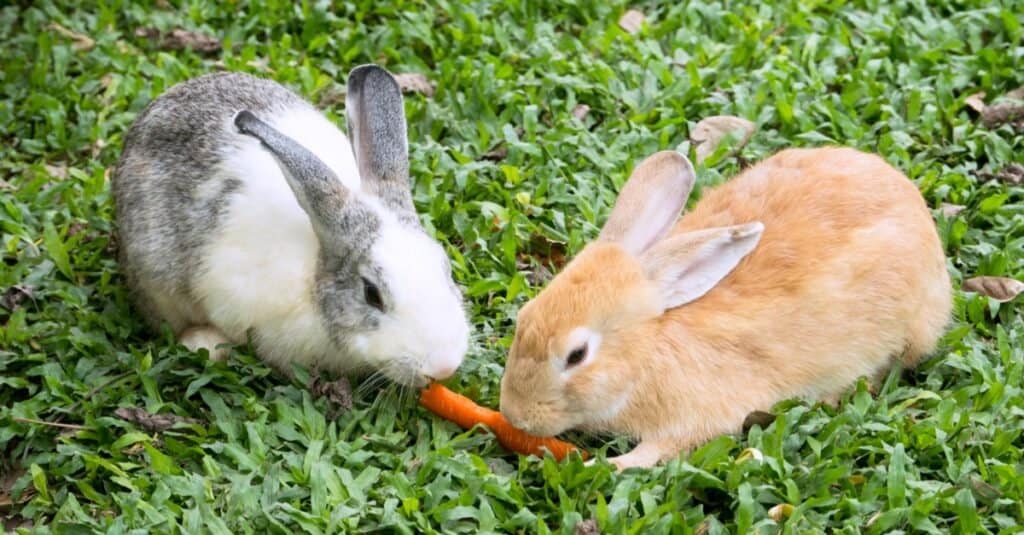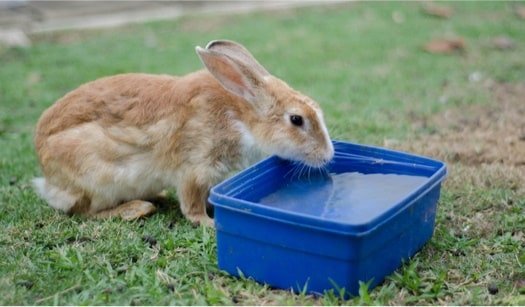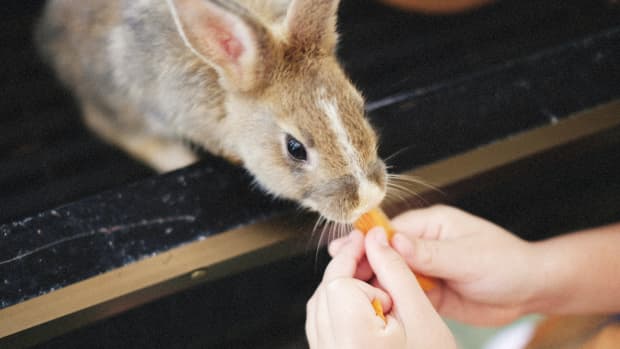How Long Can Bunnies Go Without Food: Risks & Guide Is Here!

How long can bunnies go without food? Bunnies can go 3 to 4 days without food but shouldn’t starve for over 12 hours. Starving for hours develops a deadly GI Statis condition that can cause death within 2-3 days.
Due to improper diet, wrong feeding schedule, and disease, bunnies can show no appetite for food. If it continues for more than 12 hours, the shift in the pH level in the stomach causes extreme gas and severe muscle contraction. Even the condition gets worsens and causes death without proper treatment.
Confused about bunnies rabbits’ diet and feeding schedule? Scroll through our article for a quick guide and keep your rabbits healthy and active.
How Long Can Bunnies Go Without Food?
Bunnies are natural grazers and require continuous food to run the digestive system. Without regular chewing of grass or hay for more than 12 hours, the digestive system faces a shift in the pH level. As a result, it develops a deadly condition called GI Statis, causing extreme gas and severe muscle contractions in the stomach.
If the critical condition remains untreated for more than 3 to 4 days, it worsens and causes death. To avoid such conditions, it is wise to maintain a proper diet and feeding schedule. Hence, we suggest not keeping your bunnies without food access for more than 12 hours.
How Long Can Bunnies Survive Without Water?

According to Petkeens, bunnies can survive up to 24 hours without water. Due to the continuous digestive system, bunnies require some water every hour. If they don’t have any access to water, they can’t survive longer than a day.
When rabbits deal with dehydration, the digestive system shuts down slowly and causes extreme gas. Within a few hours, the digestive system of bunnies shuts down systematically.
If the temperature is a little high, the failure of the digestive system can be quicker. Also, debris or bacteria in water sources can cause severe dehydration. To avoid dehydration, it is better to ensure a fresh and clean water source for the bunnies.
How Much Food Do Bunnies Need To Eat?
It depends on the bunny’s weight, around 25 g or an eggcup of pellets per kg of body weight. Besides, always give the adult rabbits access to unlimited grass or hay to keep them healthy and active.
Bunnies are natural grazers and continuously consume food all day. Hence, they can get overweight quickly and develop health problems. So, always limit the amount and maintain an appropriate diet.
If you notice the opposite problem due to digestive issues, offer high-calorie food options to ensure a healthy weight. On the other hand, baby rabbits only depend on mother’s milk for 3 weeks. After 3 weeks, you can provide solid food to ensure healthy growth.
How Often Should I Fed Bunnies?

As per Agrifarming, bunnies must feed twice daily. It is better to feed rabbits once in the morning and once in the evening.
Bunnies regularly graze and continuously eat every waking minute. It keeps their stomach active and hydrated and helps in proper growth. Hence, we suggest giving the adult rabbits access to unlimited grass or hay.
If rabbits don’t get food for a few hours, the digestive system faces a shift in the pH level and develops a deadly condition called GI Statis. In fact, the condition produces extreme gas, and severe muscle contractions in the stomach can cause death. As a result, always maintain a proper diet and feeding schedule to ensure proper growth.
What Can Bunnies Eat?
Bunny diet changes with life stages and differs significantly from babies to mature ones. In short, Baby rabbits only depend on their mother’s milk for 3 weeks. After 3 weeks, they can eat solid food like alfalfa hay and pellets for quick growth.
Till 7 to 8 weeks, they continue mother milk with solid food. During this period, it is better to give rabbits access to unlimited grass or hay. After 3 months, they can eat vegetables and fruits but increase the amount gradually. Once the rabbits become a year old, provide higher calories food, including pellets and alfalfa hay.
Also, a proper mixture of grass and hay works excellent for rabbits. Due to excessive consumption, adult bunnies become overweight and develop health problems. If you inspect overweighing issues, limit the amount of high-calorie food and maintain an appropriate diet. Further, always keep a fresh and clean water source for the bunnies.
What Can I Do If a Bunny Is Not Eating?
Bunnies can strive due to various reasons, including Gut stasis, dental disease, organ failure, and infections. Without proper knowledge of medicine, it becomes hard to prescribe the issues. That’s why we suggest taking the bunny to the nearest rabbit-savvy vet.
If you’re looking for home remedies, it is better to increase the amount of water and mixture of grass and vegetables. Most reasons are related to dehydration, which causes no appetite for food. But if you don’t inspect any improvement, contact the vet as soon as possible. Otherwise, these issues can get worse quickly and cause death.
How To Provide Food For The Bunny While On Holiday
It depends on the duration of the holiday. If you’re on holiday for 2-3 days, you can use a food and water chamber for your bunnies to ensure a proper food supply. Also, call a friend to check on your rabbits at least twice daily.
But if you’re on an extended vacation, Vets4pets suggests hiring a pet-sitter to care for your bunnies. Few pet-sitters offer veterinary nursing qualifications that can help in times of emergency. It is better to check out the reviews of previous clients to pick a trustworthy pet carer.
Warp Up
Bunnies can go 3-4 days without food but shouldn’t starve for over 12 hours. Starving for hours causes extreme gas and severe muscle contractions in the stomach. But maintaining a proper diet and feeding schedule can avoid these issues.
To keep bunnies healthy and active, feed them twice daily and give them unlimited grass or hay. If you inspect signs of no appetite for food, take the bunny to the nearest rabbit-savvy vet for a quick treatment!
